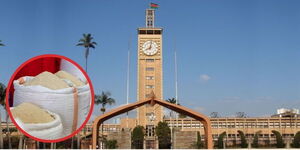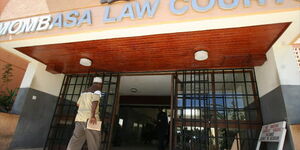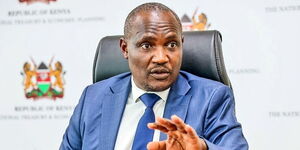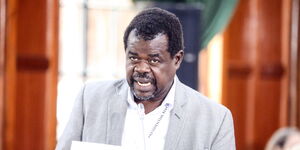The United States Supreme Court has denied the Trump administration's attempt to withhold nearly $2 billion (approximately Ksh257 billion at the current exchange rate) in payments to foreign aid organisations for services already rendered.
The ruling, issued on Wednesday, March 5, mandates the release of funds to contractors and grant recipients affiliated with the US Agency for International Development (USAID) and the State Department, ensuring the continuation of critical humanitarian projects worldwide.
In a 5-4 decision, the Supreme Court upheld a prior order from US District Judge Amir Ali, who had instructed the administration to disburse the funds by February 26. However, the Apex Court did not specify when the funds should be released, instead referring the matter back to the District Court for clarification.
Chief Justice John Roberts and Justice Amy Coney Barrett joined the court’s liberal justices in the majority, emphasising the judiciary’s role in upholding contractual obligations and the rule of law.
The controversy began when President Trump, advocating an "America First" agenda, issued a 90-day freeze on all foreign aid upon returning to office on January 20. This abrupt halt disrupted numerous USAID operations globally, jeopardising the delivery of essential food and medical aid.
Humanitarian organisations argued that the freeze endangered millions, particularly in regions like Kenya that are reliant on US assistance.
Kenya, a longstanding beneficiary of US foreign aid, has felt the repercussions of these funding uncertainties. On Wednesday, Treasury Cabinet Secretary John Mbadi told Senators the suspension of USAID funding has resulted in an estimated deficit of approximately Ksh52.3 billion in the 2024/25 fiscal year.
The effects of the suspension of aid have already begun to be felt. Last month, protests erupted at Kakuma refugee camp, home to around 300,000 people, in response to announced cuts in food rations caused by funding shortages. These demonstrations led to violent clashes between refugees and police, resulting in injuries on both sides.
The World Food Programme (WFP) had previously reduced food allocations to 45 per cent of the minimum required, citing a lack of resources. The US aid freeze exacerbated these shortages.
Beyond immediate food security concerns, the aid freeze also threatened broader health initiatives. The World Health Organisation (WHO) warned that disruptions in US funding could severely undermine efforts to combat diseases such as tuberculosis in low- and middle-income countries.
Historically, USAID has been instrumental in preventing millions of TB-related deaths annually, with US contributions comprising a significant portion of international donor funding for TB programmes.
The Supreme Court’s ruling offers a reprieve for these critical health interventions. By ensuring the release of funds, ongoing projects aimed at disease prevention and treatment can continue, potentially saving countless lives.












